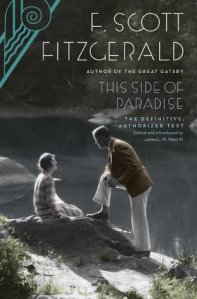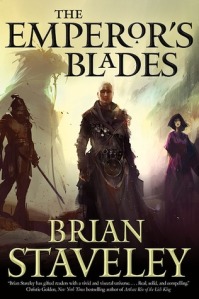Rainbow Rowell continues to break boundaries with Carry On, an epic fantasy following the triumphs and heartaches of Simon and Baz from her beloved bestseller Fangirl.
Simon Snow just wants to relax and savor his last year at the Watford School of Magicks, but no one will let him. His girlfriend broke up with him, his best friend is a pest, and his mentor keeps trying to hide him away in the mountains where maybe he’ll be safe. Simon can’t even enjoy the fact that his roommate and longtime nemesis is missing, because he can’t stop worrying about the evil git. Plus there are ghosts. And vampires. And actual evil things trying to shut Simon down. When you’re the most powerful magician the world has ever known, you never get to relax and savor anything.
Carry On is a ghost story, a love story, a mystery and a melodrama. It has just as much kissing and talking as you’d expect from a Rainbow Rowell story — but far, far more monsters.
Review:
When Carry On was announced last year, I couldn’t help but feel a bit extra special. In my review for Fangirl, Rowell’s previous YA novel that featured the novel-within-a-novel that eventually inspired her new novel Carry On (did you get that?), I requested that she adapt the Simon Snow scenes to a standalone book. Because in Fangirl the Simon Snow scenes were bonkers: a mash-up of Harry Potter with an Edward Cullen-esque vampire thrown in for good measure, topped off by an astonishingly well-developed mythology for seemingly throwaway scenes.
So Rainbow wrote it (for me! And I guess the thousands of others who clamored for it), and here I am, deeply downtrodden, because I have to report that this special-order book was not what I wanted. And okay, I immediately recognize that “this book is not what I wanted” is not a valid criticism. Rainbow doesn’t know who I am and she is not writing for me and that is good! Authors tend to shoot themselves in the foot as soon as they write for an audience. But the criticism holds somewhat seeing as Carry On is not Rainbow’s first Simon Snow rodeo. These characters already existed elsewhere; Carry On, as I understood it, would simply be their movement towards center stage.
Simon, Baz, Penelope and the gang have not just found the spotlight, however. They are entirely different incarnations of the characters I recall from Fangirl. And in shocking ways too. Originally, Simon and Co. were thick, meaty characters, dripping with turmoil in the face of insurmountable obstacles, but always–always–surmounting them. They managed to shine so brightly despite the fact that their appearances were intermittent and brusque. With more than 500 pages all to themselves in this novel, I expected their stories to develop in more complex and epic ways. Yet faced with so many pages to fill, they deflate to dull versions of their Fangirl selves. Petty problems rule the day; the supreme villain is rarely mentioned. Which I suppose is true in other epic fantasy novels. Harry Potter was not always thinking about Voldemort. For serious swaths of the series, he’s more concerned with Quidditch.
But Rainbow Rowell does not have the same advantages JKR had writing Harry Potter. Carry On is as if she started writing the series at Deathly Hallows. There’s so much that happened before, but we don’t see it so the stakes are so much lower. The result is a sham, a house of cards she tries to convince us is an actual house. But the little gusts the pages made as I turned them faster–eager to get to the good bits and finally eager to finish because there were no truly good bits–blew the whole house down. And then I see that Simon and everyone was just paper, thin and lifeless paper.
2 out of 5 stars









 ”
”